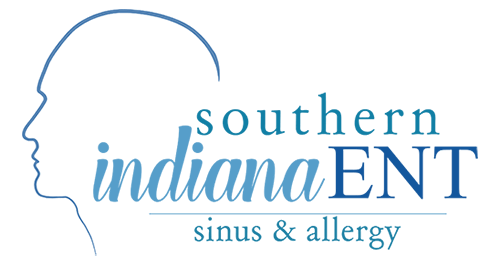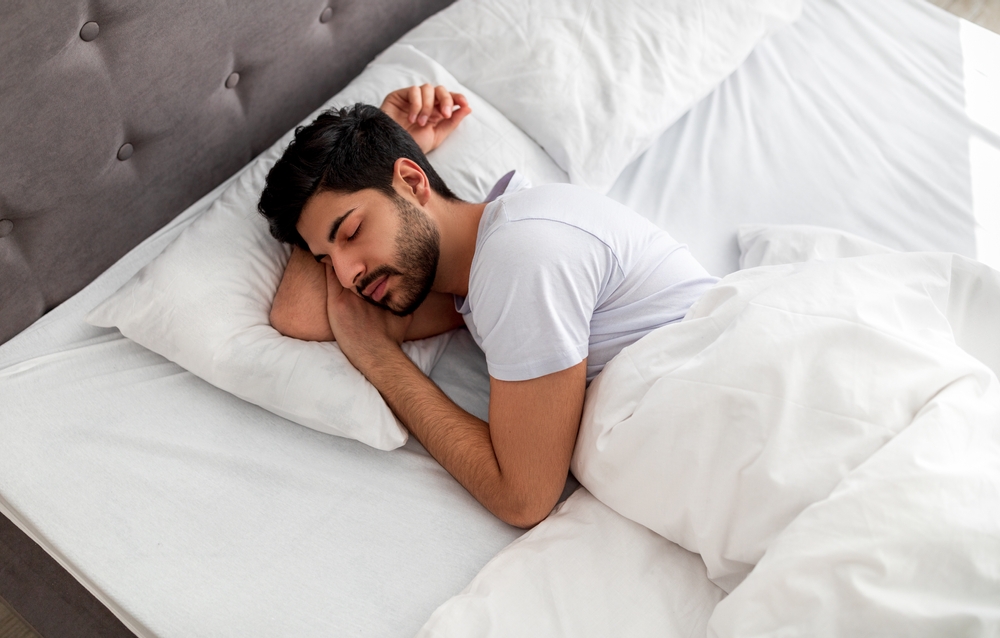
Do you snore loudly? Are you often excessively sleepy and exhausted during the day, even after a full night’s sleep?
You may have sleep apnea, a common condition that causes symptoms that may disrupt your sleep and daily life. Fortunately, dental appliances can provide an effective solution for patients with sleep apnea, helping them get the rest they deserve.
Keep reading to learn how dental appliances help with sleep apnea.
What is Sleep Apnea?
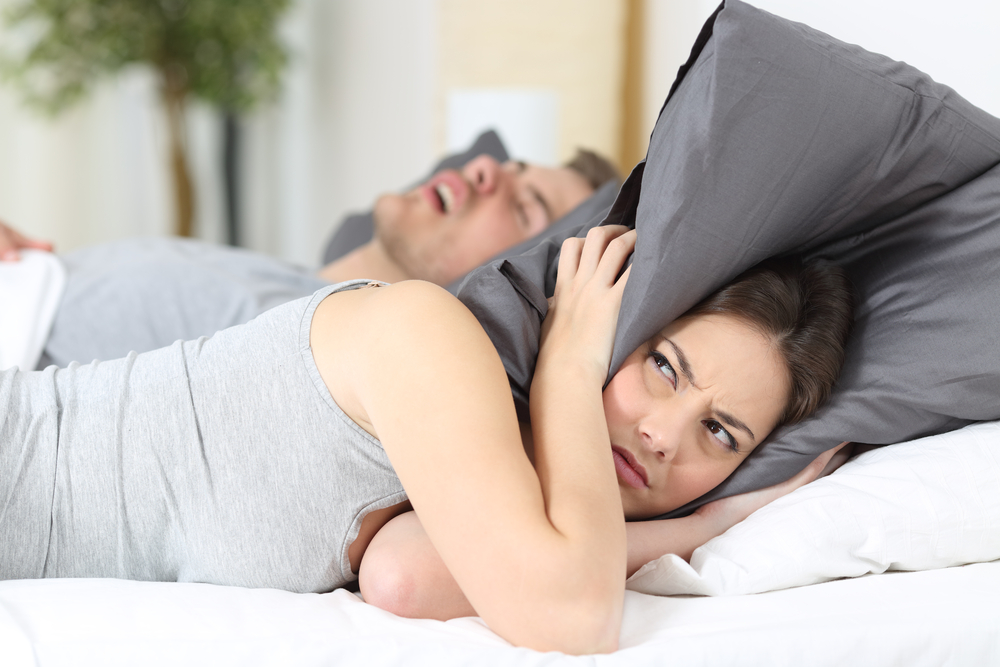
Sleep apnea is a sleep disorder that causes you to regularly stop breathing while asleep. Every time your brain detects the breathing pauses, it wakes you up just enough to begin breathing again.
These awakenings are so brief that you won’t recall them, but they prevent healthy sleep. Sleep apnea episodes, or the number of times you stop breathing, can occur 5 to 30 times an hour or, in severe cases, over 30 to hundreds of times per hour throughout the night.
You may stop breathing anywhere from 10 seconds to a few minutes per episode. Obstructive sleep apnea, or OSA, is the most common form of the condition.
It happens when the muscles at the back of your throat that support your tongue, the side walls of your throat, the tonsils, the uvula, and the soft palate relax too much. As a result, they can partially or completely block your airway, restricting or cutting off airflow.
Once your brain senses that you’re unable to breathe, it wakes you up so you can resume breathing. This pattern repeats itself multiple times, causing periodic awakenings all night long.
What are the Symptoms of Sleep Apnea?
You may experience the following symptoms when you have sleep apnea:
- Loud snoring
- Choking or gasping
- Night sweats
- Morning headaches
- Irritability
- Difficulty focusing during the day
- Excessive daytime fatigue and sleepiness
- Waking up with a sore throat or dry mouth
- Sexual dysfunction
A bed partner or family member may notice symptoms such as choking, gasping, and loud snoring. Without treatment, sleep apnea can raise your risk for:
- Acid reflux
- Weight gain
- Adult asthma
- High blood pressure
- Metabolic syndrome
- Type 2 diabetes
- Liver problems
- Stroke
- Heart disease
- Heart failure
- Anxiety and depression
- Car and work-related accidents
- Shortened lifespan
Prompt diagnosis and treatment of sleep apnea are critical in preventing complications, alleviating your symptoms, and improving your health and quality of life.
How is Sleep Apnea Treated?
Your ENT specialist may recommend a variety of different treatments depending on the type, cause, and severity of your condition. A continuous positive airway pressure (CPAP) machine is considered the gold standard treatment for sleep apnea.
It works by delivering a steady flow of pressurized air to keep your airway open and help you breathe normally during sleep, offering relief from sleep apnea symptoms. However, not every patient is comfortable using a CPAP machine.
In this case, your ENT specialist may recommend a dental appliance.
What are Dental Appliances for Sleep Apnea?
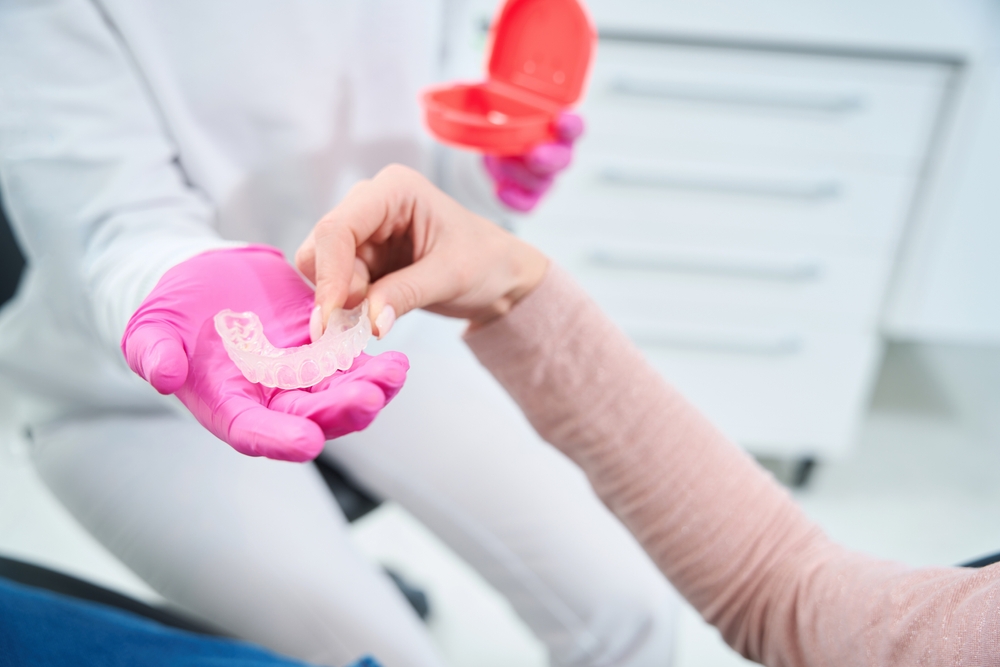
Dental appliances are custom-made oral devices used to treat mild to moderate obstructive sleep apnea. They’re worn in the mouth to keep your airway open and improve breathing while sleeping.
If you have mild to moderate OSA, can’t tolerate CPAP therapy, or travel frequently, a dental appliance can be an effective and more convenient alternative.
There are different types of sleep apnea dental appliances, including:
Mandibular Advancement Devices (MAD)s
MADs, or mandibular advancement devices, reposition your mandible or lower jaw forward, moving your tongue forward. This prevents airway obstruction and allows for better airflow.
A MAD has two parts that fit comfortably over your teeth, one for your bottom teeth and the other for your top teeth. The parts are connected with hinges and screws that enable you to push your jaw forward.
A MAD can significantly improve your sleep quality, reduce snoring, and decrease the intensity and frequency of sleep apnea episodes.
Tongue Stabilizing Devices
Your ENT specialist may suggest a TSD or tongue stabilizing device, also called a tongue-retaining device, if you can’t wear a MAD due to dental issues. A TSD is a small piece of soft plastic that treats OSA by shifting your tongue forward during sleep.
Unlike MADs, a TSD doesn’t rely on lower jaw movement. Instead, it sits comfortably on your lips while its bulb-like tip protrudes slightly outward.
The tip into which you insert your tongue gently holds it forward, preventing it from collapsing backward and blocking your airway. This promotes unobstructed breathing, improving sleep quality and reducing apnea symptoms.
Mouth Guards
Mouth guards for sleep apnea can help reposition the jaw so you can breathe better at night. They tend to be more affordable than other dental appliances, but may not be as effective.
What are the Benefits of Dental Appliances for Sleep Apnea?
Some of the advantages of using a dental appliance include:
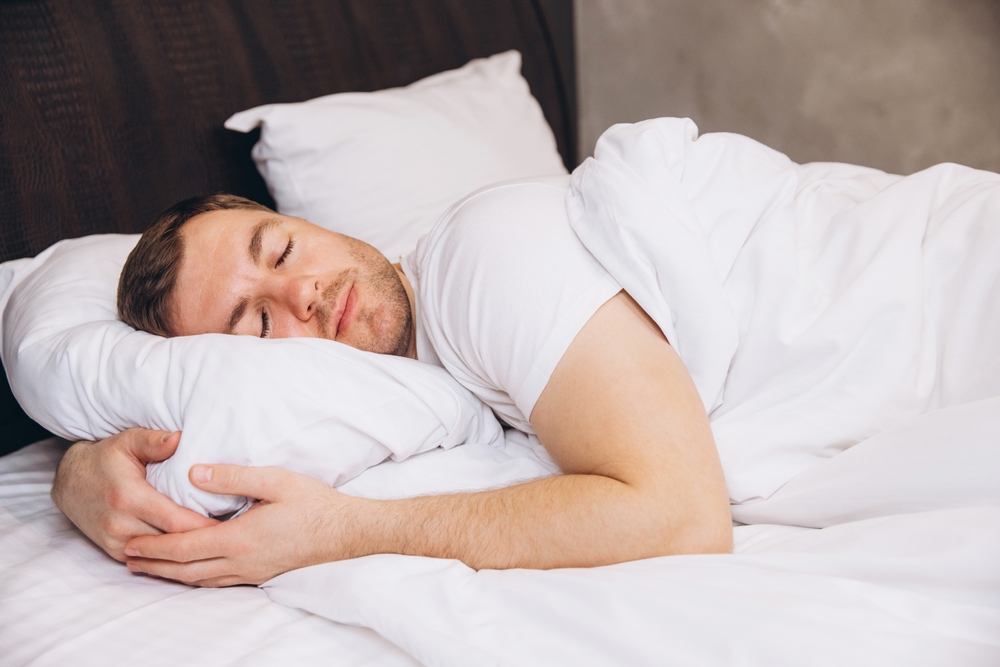
Effective Treatment
Oral appliances can effectively treat mild to moderate OSA. They enhance your sleep quality by ensuring your airway remains open throughout the night.
Restorative, restful sleep will leave you feeling refreshed and energized, ready to take on every day. Additionally, dental appliances reduce or eliminate snoring, improving sleep for both you and your bed partner.
Increased Compliance
Many sleep apnea patients find dental devices easier to use and more comfortable than CPAP machines. Moreover, dental appliances are compact and lightweight, making them a more convenient option for apnea patients who travel often.
Being able to carry an oral appliance when traveling and wear it every night without any hassles encourages consistent use. Compliance is crucial for successfully managing sleep apnea and improving overall health outcomes.
Decreased Health Risks
Oral device therapy can significantly reduce the risk of health complications associated with sleep apnea.
Get Your Sleep Apnea Under Control with a Dental Appliance
At Indianapolis Sinus Center, we specialize in creating custom dental appliances tailored to your specific needs. After undergoing a sleep study to diagnose sleep apnea, our ENT specialists can determine the best dental appliance to help you sleep better again, find relief from your symptoms, and avoid potential complications.
Do you suspect you have sleep apnea? Schedule your appointment at Indianapolis Sinus Center in Indianapolis, IN, today to reclaim your sleep and start towards a healthier life.

